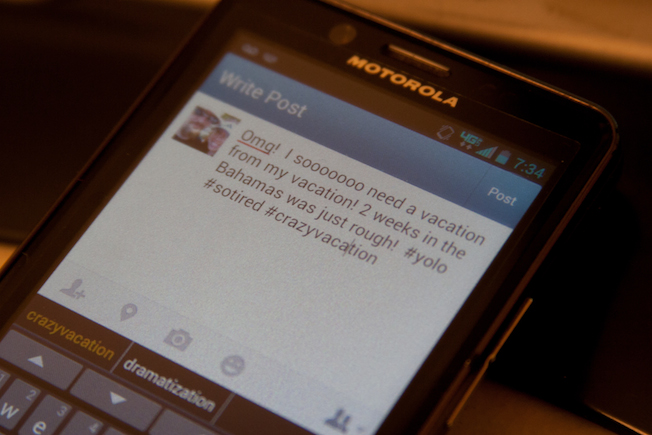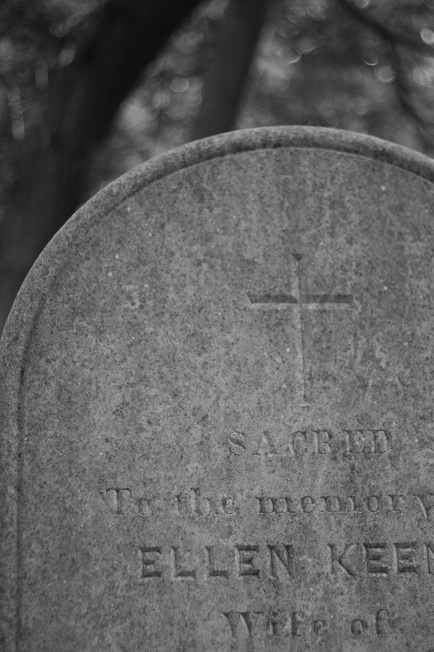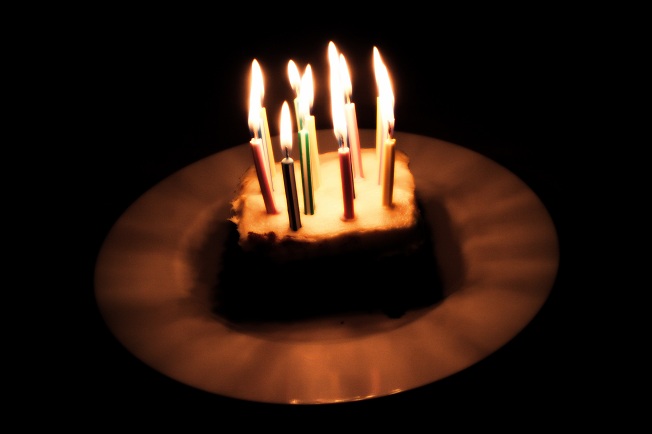Okay, people: show of hands. How many of you have engaged in a self-enforced social media moratorium for more than a week at a time? You know: “deleted” your Facebook (when you knew the whole time that the only thing standing between you and your next hit was the re-entry of your password)? Or “protected” your tweets (aw but this is no fun, how will all my potential new followers/bots know that they actually want to follow me)?
We “go dark” online (and in our hearts) for all sorts of reasons. I have done so on multiple occasions due to my complete and utter inability to A) assess the worth of, validity of, and reasons-I-even-give-a-shit about someone’s very publicly announced life milestone, which directly correlates to B) My complete and utter inability to say something awesome about my own achievements. Now, this is, of course, only applicable when and if those achievements actually crop up, which is another puzzle piece in and of itself. How come I feel like such a loserly asshole when everybody else is tweeting about their promotion or the fact that SHE SAID YES, but I feel like even more of a loserly asshole when I have my own great news to post about? This is where I start SPI-RA-LING. Enter the dragon. Enter THE HUMBLEBRAG.
But I hate that guy. That Humblebrag. According to Humblebrag, I must publicly admit that, fueled by pounds of goat cheese and the blissful clarity that only boxed Chardonnay can provide, I gave up yoga on weeknights so I could beast through my novel edits. Then, and only then, after I had gained ten pounds and stopped wearing pants, did I become worthy of praise. “I did this thing! This thing I worked really hard on happened! I’m really proud! But I am the very hottest of messes because of it, so don’t worry.” The humble part of that brag is probably NOT EVEN TRUE! I might have skipped out on yoga a bunch during that short era and my goat cheese consumption rates probably peaked, but it was as unworthy a footnote in my tweet/Facebook post as it would have been in the actual book. But Humblebrag tells us it’s wrong to simply state the glowing accolades without any humanizing self-deprecation to cleanse the palate.
There’s another school of thought that encourages those who are #adulting and achieving things to shed the ‘humble’ of Humblebrag and just… well… brag. Own it. Bask in it. And yes, I super duper respect this. Why indeed should you force your grand achievement to share the spotlight with an awkward drunk uncle who nobody invited to the party, like a mic crasher at the VMAs or some other comparably low-brow self-congratulatory goblin ball? Just brag, they say. You earned it, after all. But for me, that’s just as uncomfortable as fabricating a humiliating, silly “humble” aspect to my otherwise stellar announcement. So #Straightbrag is not for me either.
There does, however, exist a third option. And I want this one to stick. I want this one to come in and sweep Humblebrag off his humble-pie feet (his feet are made of pies, as we all know)! Please meet my delightful companion for the evening, #ThankYouBrag. Here’s the way this works: chances are, if you accomplished something noteworthy, you didn’t do it completely alone. Even the most solitary of activities (like, oh, here we are, writing) requires cheerleaders from time to time. This is your friend who went to the coffee shop with you and set up their laptop next to yours so you could help each other destroy your deadlines. This is your roommate, who contributed gorgeous concept art based on your new script for you to hang on your wall “just because.” This is your co-worker who wrote a novel of an email to your boss, encouraging her to let you “spread your wings and prepare to fly” and promote you (because obviously you work for Mariah Carey). When you go to make your big, exciting announcement across your social media platforms, you will tag these people and you will thank the shit out of them.
You didn’t have to debase yourself with a humblebrag. You didn’t have to pull any straight up unsolicited gloating either. You announced your big bad self. And you thanked everyone who helped you along the way. You feel great because you got to shout your fabulous news from the rooftops. They feel great (hopefully) because you tagged them and thanked them for being amazing. You don’t look like a self-deprecating Eeyore with his dumb bow-tie tail dangling half off (“Thanks for noticin’ me”). You look like a real adult who is proud of their achievement and grateful to have had the support of an awesome network of people.
Just maybe hold back on the #blessed. I mean, you’ve got to draw the line somewhere. #sorrynotsorry
Originally published on the author’s blog at www.elizabethkerin.com


